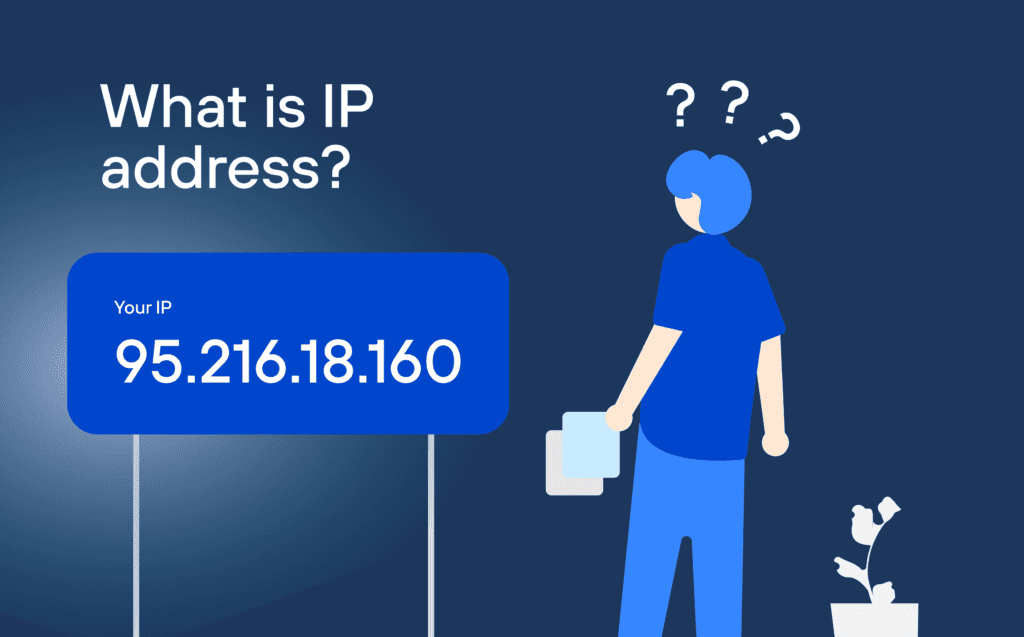Summary of the Blog
- What is IP Address
- Use of IP Protocol
- IPv4 v/s IPv6
- Types of IP Address
- Importance of Understanding IP Address for network management and security
what is the IP address?
An IP address is a numerical label assigned to each device participating in a computer network that uses the Internet Protocol. Its main purpose is to identify the device and provide its location in the network. IP addresses are essential for data communication across the internet. They come in two versions – IPv4 (32-bit) and IPv6 (128-bit), with the latter introduced due to the limited availability of IPv4 addresses. IP addresses can be dynamic or static.
Use of Internet Protocol
The Internet Protocol (IP) is fundamental for:
– Assigning unique addresses (IP addresses) to devices.
– Breaking data into packets for efficient transmission.
– Routing data through networks to reach specific destinations.
– Handling errors in data transmission.
– Supporting logical addressing for seamless communication.
– Facilitating the transition from IPv4 to IPv6 for expanded addressing.
– Providing security features through IPsec.
– Enabling prioritization of certain types of traffic (Quality of Service).
In essence, IP is essential for the identification, transmission, and secure communication of data across networks and the internet.
IPv4 v/s IPv6
IPv4 has 32-bit addresses, offering about 4.3 billion unique addresses. IPv6 has 128-bit addresses, providing an extremely large number of unique addresses. IPv4 is facing exhaustion, while IPv6 was introduced to overcome this limitation. IPv6 has built-in security features and supports autoconfiguration. The transition from IPv4 to IPv6 is ongoing.
Types of IP Address
Private IP Address Used within a private network, not directly accessible from the internet. Examples include 192.168.x.x, 172.16.x.x to 172.31.x.x, and 10.x.x.x.
Public IP Address Assigned to devices directly connected to the internet, allowing identification and accessibility. Unique and globally routable.
Dynamic IP Address Assigned by DHCP servers, is temporary and may change with each network connection. Common in home networks.
Static IP addresses manually assigned do not change over time. Provides a fixed point of contact, often used for servers and devices requiring consistency.
Importance of understanding IP addresses for network management and security
Understanding IP addresses is vital for network management and security because it facilitates device identification, efficient resource allocation, and proper subnetting. It is crucial for implementing access controls, firewalls, and intrusion detection systems, contributing to network security. Additionally, knowledge of IP addressing is essential for DHCP configuration, troubleshooting network issues, and adapting to the transition from IPv4 to IPv6. Security logging, monitoring, vulnerability assessments, and penetration testing also heavily rely on a solid understanding of IP addresses. In essence, IP address comprehension is fundamental for maintaining a secure, well-managed, and resilient network infrastructure.
Conclusion:
IP addresses are the backbone of digital communication, providing unique identifiers crucial for device recognition and data transmission across networks. The transition from IPv4 to IPv6 reflects the evolving needs of our interconnected world, while the security and management of IP addresses remain paramount in safeguarding digital infrastructures. A comprehensive understanding of IP addressing is essential for optimizing network performance, implementing robust security measures, and ensuring the seamless flow of information in the ever-expanding realm of the internet.






